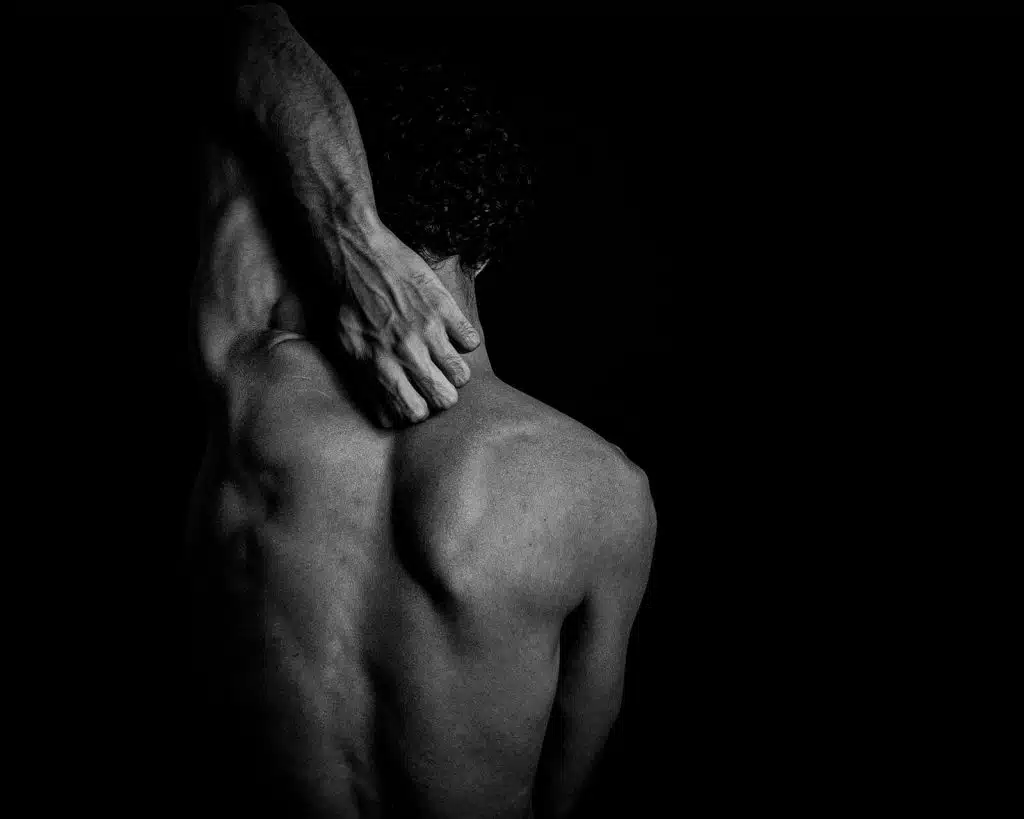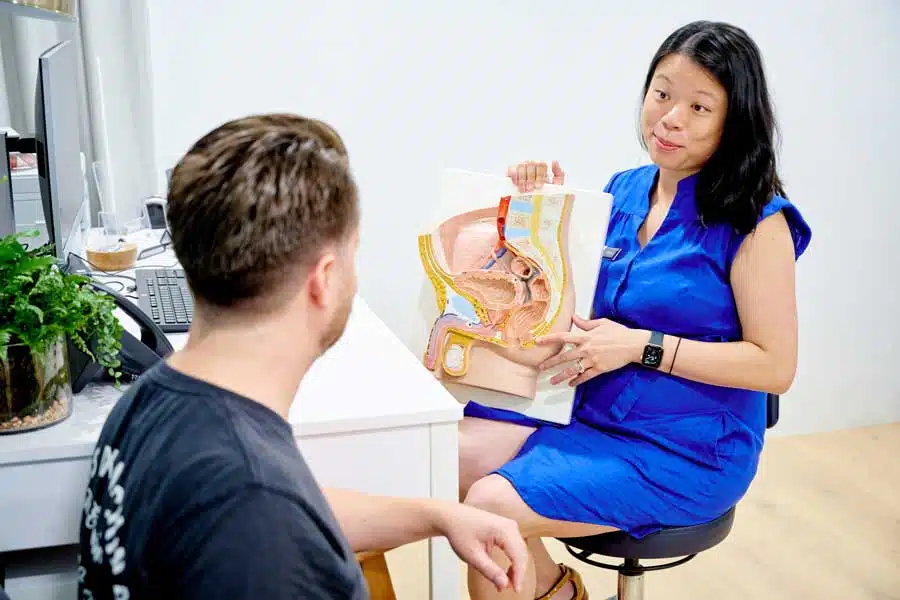Do you ever find yourself experiencing frequent shoulder pain, or weakened/restricted movements of the arm? If so, a rotator cuff injury could be the culprit behind that sore shoulder and arm.
It’s not uncommon to develop rotator cuff injuries, especially if you’re one who works a physically demanding job. Athletes and trade workers are more susceptible than most to developing a rotator cuff injury, as a result of physical strain and repeated shoulder movement as they do their work.
Rotator cuff injuries can be a nasty bit of pain to work through, but thankfully, there are healthcare professionals out there fully prepared to help!
Let’s learn more about what rotator cuff injuries are, who is most susceptible to them, and what you can do to seek treatment.
What Is a Rotator Cuff Injury?
A rotator cuff injury refers to any kind of ailment, whether it be a tear or strain, that happens to a person’s rotator cuff. A rotator cuff refers to a group of four muscles located in the shoulder that provide strength and stability to the shoulder and arm as it moves.
There are many different kinds of rotator cuff injuries a person can experience. These include rotator cuff tendinopathy, a rotator cuff tear, or a rotator cuff strain.
These injuries are a result of shoulder instability or repeated strain on the shoulder muscle, usually as a result of repeated physical movements. However, existing genetic conditions that can impact a person’s muscles and tendons can also cause the condition to develop.
Rotator Cuff Injury Symptoms
Those who have an injured or torn rotator cuff will likely experience the following symptoms:
- Swelling in the shoulder
- Shoulder pain and/or upper back pain
- Pain while lifting objects
- Should joint stiffness
- Loss of strength in the shoulder/arm.
Who Is At Risk of Developing a Rotator Cuff Injury?
While anyone can develop a rotator cuff injury, these issues are most common across the following groups:
Athletes
Athletes are a high-risk group when it comes to rotator cuff injuries. In particular, sports that actively engage the shoulder joint and muscles, like basketball, tennis, and volleyball, are more at risk.
These sports have shoulder movements that make shoulder injury and upper arm injury a more frequent occurrence. A torn tendon or muscle can quickly evolve into a more serious rotator cuff problem that needs to be addressed.
Tradies
Those who work in the trades are also at a high risk of developing issues and needing rotator cuff repair.
This is because trade jobs often involve a lot of heavy lifting and physical labor, and most importantly, repeated physical motions. Repeatedly engaging rotator cuff muscle groups as you do work can lead to wear and tear over time, and as a result, rotator cuff pain.
Genetic Predispositions
As we touched on above, there are also certain medical conditions that can lead to issues with tendons and muscles in general, making one more susceptible to rotator cuff injuries.
These can include factors like age and weight, as well as conditions like muscular disorders, or even metabolic disorders like diabetes.
Diagnosing Rotator Cuff Injuries
When seeking treatment from a medical professional, they will diagnose a rotator cuff injury with a series of medical tests.
After learning the patient’s medical history, healthcare professionals can perform a physical exam. This is done to assess movement and pain levels in the shoulder and arm area. Imaging like an ultrasound can also be done to identify muscle and tendon problems.
Rotator Cuff Treatment Options
Those who suffer from conditions like rotator cuff tendinopathy or a rotator cuff tear are not alone. There are plenty of options out there to help them find pain relief and get back to living a healthy, pain free life.
Nonsurgical Treatment
A majority of the treatment methods for this kind of injury are nonsurgical. These can include:
- Over-the-counter pain medication, like ibuprofen
- A combination of heat/ice treatments for the affected muscle
- Regular rest for the shoulder muscle
- Physical therapy exercise, including shoulder mobility and strengthening
- Steroid injections, to reduce shoulder joint soreness
Surgical Treatment
Shoulder surgery to treat a rotator cuff problem is usually very rare. This is an extreme measure, with surgical repair only taking place in cases of extremely traumatic shoulder injuries.
Living With Rotator Cuff Injuries: Darren’s Story
To learn more about what it’s like to deal with rotator cuff injuries, let’s hear Darren’s story.
Darren is a 30-year-old in Sydney and works as a renderer. It’s a highly physical job, where he frequently lifts heavy-weight objects above shoulder height.
Darren begins to feel sound shoulder pain and isn’t sure what to do. He begins normal pain relief methods like over-the-counter medicine, stretching, and icing the affected shoulder. Unfortunately, these don’t work.
Darren begins to live with daily discomfort taking tons of medicine. Finally, he is convinced by his partner to see a physical therapist look at his shoulder blade and address the problem
As a result, Darren got to learn that his pain was actually an issue with his rotator cuff tendon and that there were nonsurgical treatment options to help. With a physical therapy plan in place, Darren can work on healing his shoulder, and getting back to work pain-free.
Sydney Pelvic Clinic is Here to Help!
Does Darren’s story sound familiar? If so, you deserve the same good ending, with the help of a clinic like us.
Sydney Pelvic Clinic is fully prepared to help with a wide range of different physical problems, including rotator cuff injuries. If you’re looking for medical help with this condition, click here to contact us today for a consultation.

